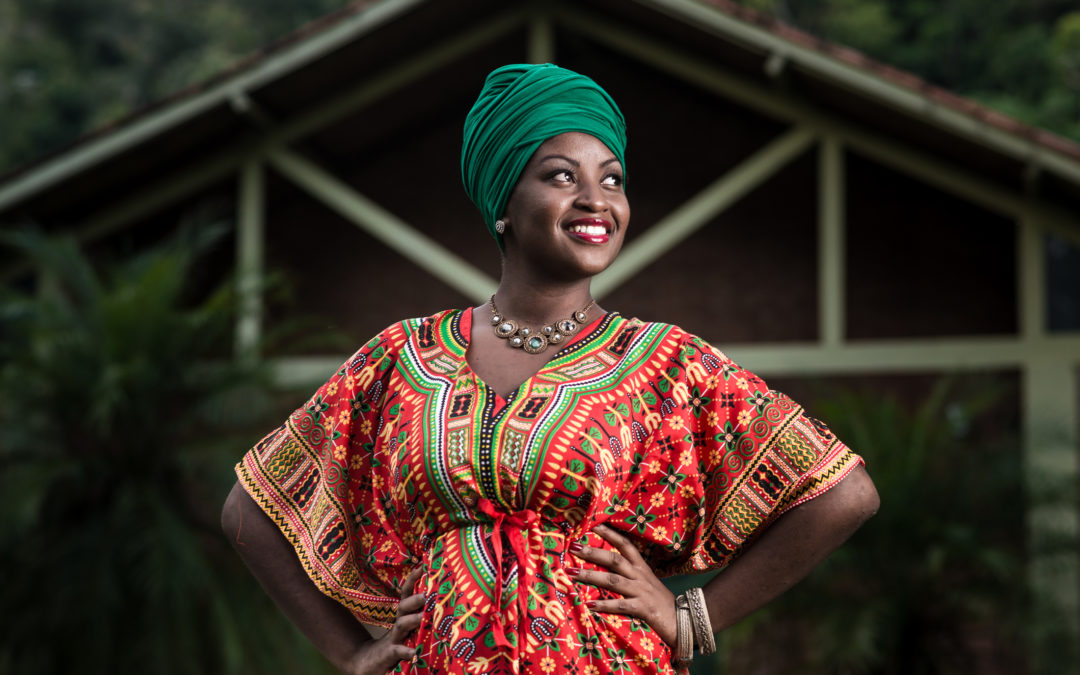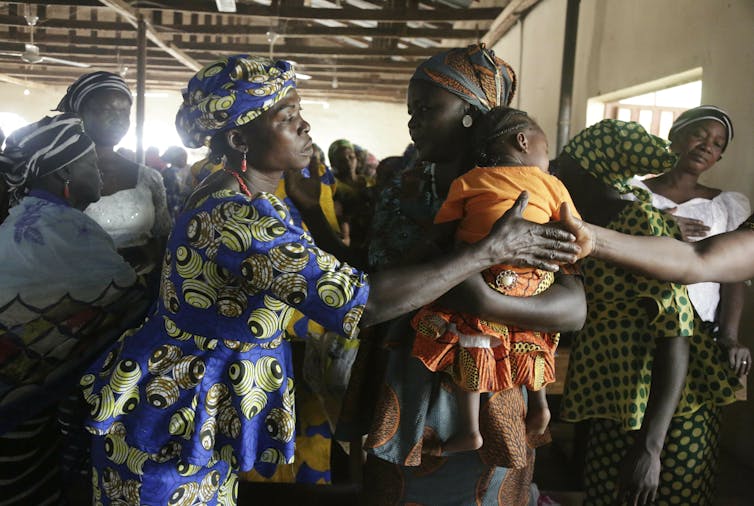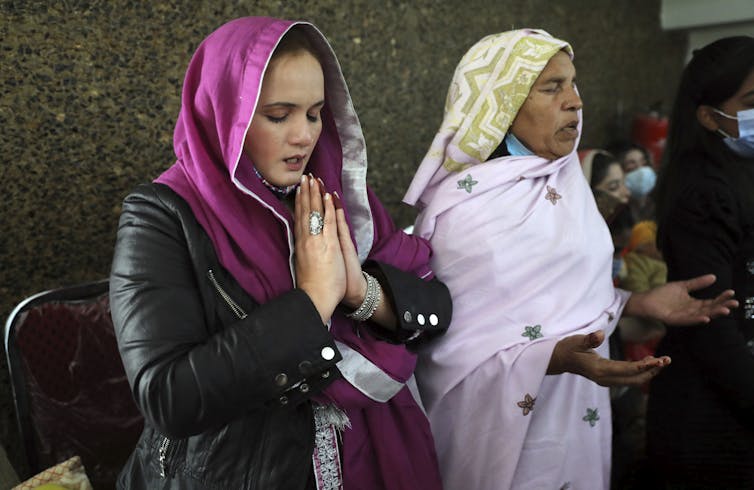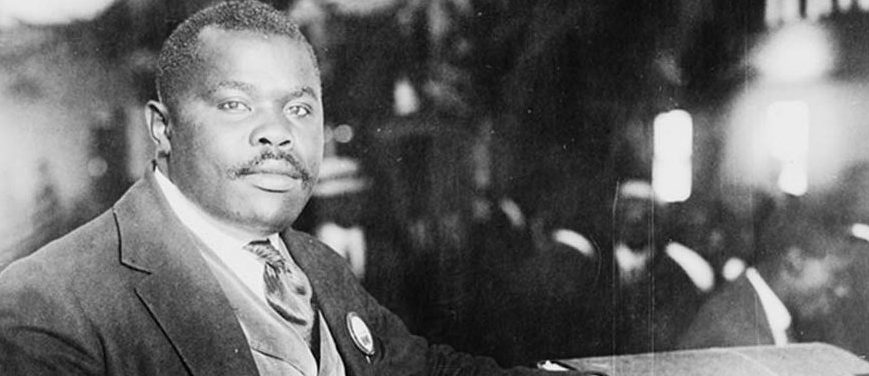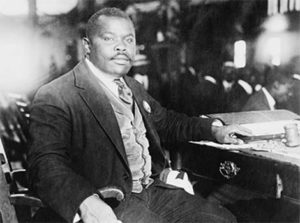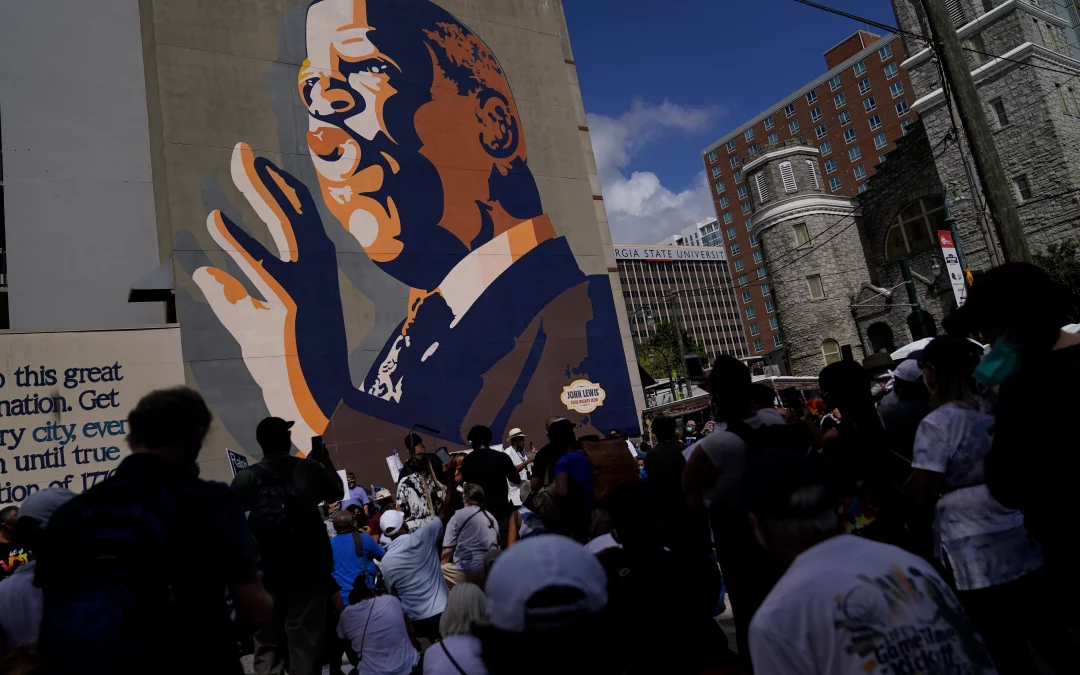
by Bridget Moix | Mar 23, 2022 | Commentary, Headline News, Social Justice |
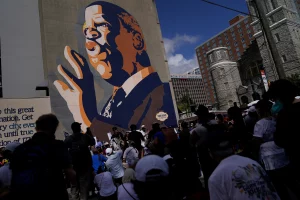
(RNS) — Millions of Texas voters headed to the polls earlier this month in the state’s primary elections — but the democratic system they participated in is markedly different from the recent past.
After last year’s enactment of sweeping voting restrictions by the Texas Statehouse, the primaries served as a first chance to see how damaging these laws would truly be. It’s too soon to get the full picture, but early signs are ominous: Roughly 30% of absentee ballots cast were rejected by election officials, a massive increase from the 2020 general election when fewer than 1% of ballots met the same fate.
Regrettably, this is likely a mere preview of what’s to come for millions of voters across the nation. In 2021, at least 19 states passed 34 laws restricting access to voting. This includes limiting mail balloting, purging voter rolls and reducing poll hours on Election Day. More than 440 bills with provisions that restrict voting access were introduced in 49 states in the 2021 legislative sessions and more are certain to come.
This isn’t just about who will or will not be able to vote in elections. When combined with the toxic partisanship that is dividing our country — and the fact that large portions of our population and numerous elected leaders still cast doubt on the outcome of the 2020 presidential election — an undeniable truth emerges: Our democracy is in deep peril.
As the first registered religious lobbying organization in the United States, we at the Friends Committee on National Legislation believe civic engagement of all people is vital to the democratic life of our country. This begins with the fundamental right to vote. Quakers and other people of faith understand that voting is not just a basic civic right but a moral requirement. At the center of our faith is the unwavering belief in and commitment to the equality and dignity of every human being. Safeguarding the integrity of the voting process for all people and removing, not raising, barriers to the full participation of disenfranchised people in our electoral process is vital to our democracy and our integrity as a nation.
What happened in Texas and in other states violates our democratic principles and our moral conscience. We know voters of color are most directly impacted by efforts to suppress their voice, both historically and today. These communities are also leading the voting rights movement, often at great personal risk. This is only the latest chapter in a long struggle against disenfranchisement of Black and brown communities in the United States. Our faith calls us to help uproot racism and discrimination wherever it exists, including at the ballot box, and to help transform our nation into the beloved community we envision.
This call to protect elections as the bedrock of democracy is not new. Earlier this year, in anticipation of Martin Luther King Day, advocates launched a large scale effort to pass the Freedom to Vote: John R. Lewis Act. This bill would revitalize American democracy by making elections more accessible, secure and transparent, and by ensuring that states do not pass discriminatory laws that restrict access to the ballot box. The effort failed due to a filibuster but has not been abandoned.
Even as Congress rightly focuses on the crisis in Ukraine and the president’s economic agenda, voting rights must remain a top priority for the nation. Currently, efforts to reform the Electoral Count Act of 1887 have real momentum in Congress, with a bipartisan group of senators working to find common ground.
This alone will not end all voter suppression, but it could be a successful vehicle for additional necessary reforms, including amendments to prevent state legislatures from overturning election results, making Election Day a holiday, supporting small-donor financing, instituting gerrymandering reforms or making absentee/vote-by-mail easier.
And despite the failed vote, senators should keep pushing for the Freedom to Vote: John R. Lewis Act. History has taught us the advancement of voting rights has never come quickly or easily — and raising the moral conscience of our nation on these issues is an important role of the faith community.
Quakers believe our democracy can live up to its potential only if the government safeguards the integrity of the voting process and ensures full participation for all people. The push for voting rights is a moral imperative and requires the urgent passage of nationwide voting rights legislation. Advocates and people of faith won’t rest until real action is taken. The Senate shouldn’t either.
(Bridget Moix is the fifth general secretary of the Friends Committee on National Legislation in its 80-year history. She brings with her more than 25 years of work in peacebuilding. Moix also leads two other Quaker organizations: Friends Place on Capitol Hill and the FCNL Education Fund. The views expressed in this commentary do not necessarily reflect those of Religion News Service.)
by Chandra White-Cummings, Urban Faith Contributing Writer | Mar 22, 2022 | Headline News |
It had been a long day. Not long because I had crammed one activity after another into a very small window of time, but long in the tangible way I had felt every hour pass. Even though I arrived late to pick up my son from track practice, his older brother and I ended up having to wait for him to come out of the building. As he opened the van door, pitched his backpack into the van, and hopped onto the seat, I skipped my customary “Hi, how was your day” greeting. My mind was too harried to bother with perfunctory courtesies.
I swerved into the exit lane of the school driveway, but just then a man walking alongside a bicycle stepped into the crosswalk. He appeared to be talking to himself. At the precise moment when my car stopped to wait for him to pass, he turned and saw me. Now he was coming back toward the van. Oh no, not today, I thought. But yes, today was the day, and it has now become to me an act of mercy and life-altering grace that I will never forget.
I rolled down my window, lowered the radio volume so he wouldn’t hear the Christian music playing, and fixed my face with an impassive look that I hoped would indicate an absence of hostility but also a need to finish quickly whatever our interaction would be.
When he came to the window, I was expecting him to start explaining what he needed. But instead, he handed me a piece of notepaper that I could see was about half full of writing. As I started to read, he began saying something that I couldn’t quite make out, but I could tell he was probably hearing impaired. His note basically related that he was new in town, didn’t have a place to stay, had no friends or family in the area, and hadn’t eaten in three days. He concluded with a simple request for money to buy food.
Now that I’ve had time to reflect on the experience, I realize that should have been my first clue that something unexpected was about to happen. Even with all his apparent needs—without a home, physical and perhaps cognitive impairments, hunger, no family—he had narrowed his request down to one thing: I’m hungry. Can you help me get some food? I see this now for what it was: raw humility.
I looked up from the note and explained that I didn’t have any cash. Usually I at least have some loose change in my ashtray or the well in the driver side door, but not today. So being satisfied that I had dispatched my obligation as best I could, I apologized for being unable to help and began rolling my window back up. Unlike other people in his situation I’ve met before, he didn’t look angry, nor did he become aggressive. He took the note back from me, smiled, and started walking back in the direction he was originally going.
As I pulled out onto the road, I said to my sons, “I really need to start carrying some cash so I can help when situations like this come up.” They both mumbled, “Yeah,” and I could hear in their voices that surly cynicism people get when they hear someone say something that they knew would quickly be forgotten. They were right. I had said this before.
But this time it felt different.
Continuing in the vein of my day, I started mentally processing what had just happened. Unsolicited, I heard and felt God’s whisper in my heart, saying, “You don’t have any cash, but you can still give him something to eat.”
Duh, of course … I did have my debit card! In a flash, it hit me with such intensity that it came bursting out of my mouth without me really intending it to. “Hey, I have a card!” I shouted.
Now my sons were energized too. They both sat up straighter in their seats and started looking for a place we could stop and buy our stranger something to eat. At the same time, we all spotted the Burger King to our left. In my new excitement and haste to rectify my original un-helpfulness, I swung the van into the turn lane and practically skidded into the BK drive-thru line. We were all thinking the same thing: we needed to hurry because he might not be in the near vicinity for too long. My sons both started yelling things we could order, and we settled on grilled chicken, fries, and a sprite. We figured if he hadn’t eaten in three days, his stomach might be sensitive, so grilled rather than fried seemed to fit the bill. I also was price conscious because my own finances were pretty slim.
After we ordered and paid, we started looking for him. Panic began to rise as we scanned the street in front of us and the sidewalk on both sides and didn’t see him.
“There he is!”
My younger son spotted him in the parking lot of a corner convenience store where he appeared to be talking with another driver about his plight. I made a half u-turn into the store parking lot and pulled up beside our friend. When he shifted on his feet to face us, I could see on his face a flicker of recognition, but just shy of familiarity. My older son was closest to him, so I handed the bag of food to him and he reached out the window. A look of sheer surprise spread over the man’s face. Clearly he couldn’t believe we were back. My son handed him the bag, and tears welled up in the man’s eyes.
“Thank you, thank you, thank you so much, and God bless you,” the man said. We blessed him back and pulled off.
I knew what had just happened, but I also knew something else had happened. That simple hand-off of food had ushered something “other” into our midst. A hush fell over all three of us, and my spirit bore witness that the interior of my van had been transformed into holy ground. The presence of God was overwhelming. Tears started running down my face, and I saw that my younger son was struggling to hold back the tears that sat pooled right behind his eyelids. Finally he said, “Gosh, he was so grateful … poor guy.”
I heard what my son said, but I also heard someone else speaking: “Whatever you do to the least of these, you’ve done it unto Me. Thanks for feeding Me when I was hungry.” Then again: “When you give to the poor, you lend to the Lord. Thanks for the loan; I’ll pay you back.”
I was speechless. On a day when I felt the burden of so much of my own need, and was almost near the edge of panic about my own money situation, the Lord Himself visited my little tribe and gave us an opportunity to see Him, and to be blessed not just by Him but with Him. God was there as real as I’ve ever experienced Him. I saw Him in the man’s unashamed humility, his open gratitude, his peaceful demeanor despite what had to be a grinding existence, and his ready forgiveness of my earlier rejection. This man may indeed be a pauper by earthly standards, but he was just as sure a prince by eternal standards. In that simple act of obedience, I had received so much more than I had given.
Since my meeting him that day, now more than a month ago, I have thought of him every day and prayed for him when I thought to do it. He makes me wonder how many times, in our harried and distracted living, we miss the opportunity to see Jesus because we don’t recognize Him when we see Him.
Our cities and urban areas are full with people who need to be fed, clothed, comforted. But I believe we pass Him by because of the “distressing disguise” in which he appears to us. Run-down tenements, trash-strewn alleys, and overrun housing projects are not usually our idea of heavenly places. But heaven is where Jesus is, and I think maybe He’s waiting for us to realize that truth.
I almost wish I could see my hungry friend again, just so I could thank him. Through his humanity and his need, he gave me a glimpse of Someone I desperately needed to see. He gave me the opportunity of a lifetime.

